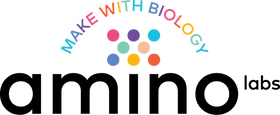
What are Genetic Mutations
What are Genetic Mutations
Genetic mutations are common. Since everything within a cell happens very fast, mistakes are bound to happen. These mistakes are called mutation and they happen during cell division. The cellular machinery might mistakenly add, remove, or change DNA letters. This can lead to genes malfunctioning and cells not working properly. Some mutations are frequent, while others are rare.
Cellular division: the source of genetic mutations
Mitosis is the process of cells dividing to make new cells for the body. To prepare for division, cells must double all their chromosomes.
Meiosis forms reproductive cells like eggs and sperm. It first doubles chromosomes and then splits them. This creates four cells, each with half the chromosomes (23 instead of 46).
Mutations can occur during both processes. In meiosis, the mutations are called germline mutations and affect future generations. They occur in reproductive cells. In mitosis, mutations are called somatic mutations and occur in normal cells. Errors during cell division cause these.
Did you know?
You can inherit germline genetic mutations. This genetic inheritance has different types: autosomal recessive, autosomal dominant, x-linked (dominant & recessive), y-linked, codominant, and mitochondrial.
Single-gene diseases are usually inherited. It depends on the gene's location. It also depends on if one or two normal copies are needed to make the protein properly.
- Autosomal dominant inheritance is a way a genetic trait or condition can be passed down from parent to child. One copy of a mutated (changed) gene from one parent can cause the genetic condition. A child with a parent with the mutated gene has a 50% chance of inheriting that gene.
- Autosomal recessive inheritance is a way a genetic trait or condition can be passed down from parent to child. Males and females are equally affected. Recessive means that both copies of the gene must have a mutation in order for a person to have the trait.
- X-linked dominant inheritance is when a genetic condition needs only one copy of a mutated gene on the X chromosome. It affects both males and females.
- X-linked recessive inheritance means a mutated gene on the X chromosome causes a genetic condition. Men, having only one X chromosome, are affected if they carry the mutation. Women, with two X chromosomes, usually have a normal gene on the other X chromosome, so they are not affected.
- Y-linked inheritance is an altered gene on the Y chromosome. Only males carry Y chromosomes, so fathers can only pass them to their sons.
- Codominant inheritance occurs when an organism expresses two different versions of a gene. Both alleles then influence the trait or condition.
- The mother passes mitochondrial inheritance from generation to generation. It is a mutation of the mitochondrial gene. They are caused by mutation of mitochondrial DNA or nuclear genes.
A carrier of a genetic disorder has a copy of the mutant gene but remains unaffected by the disorder. But, you are still able to pass it on to your offspring.
Types of Mutations:
Monogenetic: Inherited conditions caused by mutation of one gene.
Point mutations: When a single base pair is added, deleted or changed. These mutations can lead to changes in gene expression.
Missense mutations: Substitution of a base pair that produces a change in genetic expression (amino acids).
Frameshift Mutations: A base pair is inserted or deleted. This shifts the reading frame and changes the amino acids. Each amino acid has a reading frame of three base pairs. So, adding or removing a base pair would likely change the whole frame. This would likely produce the wrong amino acid.
Multifactorial inheritance: When a health problem is caused by the mutation of multiple genes (more than 1).
Chromosomal Mutations: Change in the number or structure of chromosomes. Aneuploidy is a condition where chromosomes are added or missing. It can cause disorders, such as Down syndrome (trisomy 21).
Environmental factors: Some environmental mutagens can change a cell's DNA. They include chemical exposure, UV rays, and ionizing radiation. These can result in broken DNA, chromosome rearrangement, etc.
Activity: Understanding Mutations
Use the chart below to convert this arrangement of base pairs into amino acids! Then see how each type of mutation affects how the cell will interpret these ‘construction instructions’ for their amino acids! Remember this is a DNA sequence- not RNA so you will need to translate (Thyamine vs Uracil). Answers are at the end of the post!
Partial Sequence for SLCA1 (GLUT1, Glucose transporter)
Normal Sequence:
1 aagaggcaag aggtagcaac agcgagcgtg ccggtcgcta gtcgcgggtc cccgagtgag
61 cacgccaggg agcaggagac caaacgacgg gggtcggagt cagagtcgca gtgggagtcc
Frame Shift Mutation:
1 aagaggcaa aggtagcaac agcgagcgtgc ccggtcgcta gtcgcgggtc cccgagtgag
61 cacgccagg agcaggagac caaacgacggc gggtcggagt cagagtcgca gtgggagtcc
Missense Mutation:
1 aagaggcaag aggtagcaac agcgagcctg ccggtcgcaa gtcgcgggtc cccgagtgag
61 cacgccaggg agtaggagac caaacgacgg gggtcggagt cagagtcgca gtgggagtcc

Zero to Genetic Engineering Hero Chapter 5's RNA Codon Table
Although these mutations definitely did not benefit the cell (GLUT1 wasn’t made!). Some mutations are actually extremely common and can actually benefit you! For example lactose intolerance versus tolerance! The ability for adults to drink milk (lactose) is a point mutation (missense mutation) near the lactase gene (LCT gene). This mutation ended up greatly benefiting humans and is now commonplace! Next time you drink a glass of milk, think about how you have a genetic mutation to thank!
******
Understanding mutations Activity: Answers
Normal Sequence Translation:
Lysine-Lysine-Glutamine-Glutamate-Valine-Alanine-Theronine-Alanine-Serine-Valine-Proline-Valine-Alanine-Serine-Arginine-Glycine-Serine-Proline-Serine-Glutamate-Histidine-Alanine-Arginine-Glutamate-Glutamine-Glutamate-Asparagine-Lysine-Arginine-Arginine-Glycine-Serine-Glutamate-Serine-Glutamate-Serine-Glutamine-Tryptophan-Glutamate-Serine
FrameShift Mutation Translation:
Lysine-Lysine-Glutamine-Arginine-Stop Codon
Missense Mutation Translation:
Lysine-Lysine-Glutamine-Glutamate-Valine-Alanine-Theronine-Alanine-Serine-Leucine-Proline-Valine-Alanine-Serine-Arginine-Glycine-Serine-Proline-Serine-Glutamate-Histidine-Alanine-Lysine-Glutamate-Stop Codon
